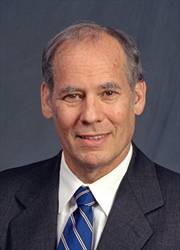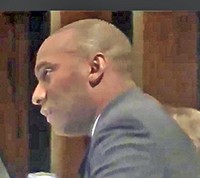Even as the Memphis City Council, now in Hail Mary mode, scrambled this week to choose from several budget alternatives, including a brand-new austerity proposal from budget chairman Jim Strickland, state comptroller Justin Wilson in Nashville was, resolutely if a bit apologetically, pointing out the bottom line.
In a strong letter last week to council chairman Edmond Ford Jr., Wilson wrote that if the council could not successfully conclude a workable budget within acceptable financial guidelines, “someone else may end up doing this.”
That someone, Wilson made clear in an interview with the Flyer on Monday, was himself, the state comptroller.
In the interview, Wilson cited Section 9-21-403 from the annotated Tennessee code, which, he said, gives him virtually unlimited authority, in a pinch, to take over the process of budget-making from Memphis city government — using his power in a virtually line-item sense, if necessary, to add or delete budget items and to set the tax rate for Memphis or any other gridlocked and out-of-balance jurisdiction.
“It’s pretty strong, and there’s absolutely no question that I’ve got to approve the budget. If the budget doesn’t balance, I can bring it into balance. There’s no question I can raise taxes. I want to be real clear about this. I hope we never get there. I do not anticipate that we get there. It’s the last thing in the world I want to do. This is not what I’m about. I don’t want to argue about my authority and all that kind of stuff. … ”
The comptroller paused to take a breath.
“But just look at that statute. The authority is powerful!”
Wilson read from portions of the statute, citing one passage in particular, which points out what can happen if a local jurisdiction fails, in the judgment of “comptroller of the treasury or the comptroller’s designee” to submit a budget that can be kept within balance.
The section reads, in part: “The annual budget of each local government with notes outstanding shall be submitted to the comptroller of the treasury or the comptroller’s designee immediately upon its adoption. The comptroller of the treasury or the comptroller’s designee must thereupon determine whether or not the budget will be in balance in accordance with this chapter.
“If the budget does not comply with this chapter, then the comptroller of the treasury or the comptroller’s designee shall have the power and the authority to direct the governing body of the local government to adjust its estimates or to make additional tax levies sufficient to comply with this chapter.” [Italics ours]
Wilson repeated that he had no desire to impose this authority so long as the city council and the administration of Mayor Wharton were making bona fide efforts to pass an acceptably balanced budget and establish clear financing guidelines.
“Oh, absolutely not. I think they’re going to work it out. I really do. But it’s there.”
Regarding the clearly stepped-up sense of urgency apparent in council budget deliberations, Wilson said, “Well, that’s good. My whole goal is to have a balanced budget.” It was not his concern “how they get there,” and he has expressed indifference about specific controversies, such as that over the restoration of salary cuts made in 2011 for city employees
“That’s not my fight, how that plays out or doesn’t play out,” Wilson said.
Asked if he had an optimistic attitude about the council’s efforts to establish a workable budget, Wilson said, “Oh yeah, I do. I really do. And the point is they are now talking to each other. And I’m hearing from council members that they want to come to resolution. Now, they may have different resolutions, but that’s all probable. Once you acknowledge there’s a problem and you all want to come together to solve it, you get a solution. I think it’s wonderful, and I hope they do.”

Justin Wilson
Wilson’s concerns about Memphis city financing were made public recently with the public release of two letters, one on May 20th to Wharton, criticizing a refinancing plan undertaken by the mayor for fiscal 2009-10 and cautioning the mayor about a new proposal for leveraging city debt that Wilson referred to as a “scoop and toss” arrangement, designed, as the comptroller saw it, to defer what would become an enlarged financial problem to a later decade.
A second letter on June 12th to council chairman Ford was even blunter. This was the one in which Wilson used the “someone else may end up doing this” language. As Wilson explained on Monday, “I had a telephone conversation with the chair, and he asked me that question [about takeover authority], and I answered it. He said, ‘Well, could you write me a letter saying that,’ and I said ‘Yep.’”
Asked why he had not taken some sort of action at the time of Wharton’s 2009-10 refinancing plan, Wilson, who was elected comptroller by the new Republican legislative majority in 2009 and took office at the beginning of that year, said he was preoccupied at the time with various kinds of financial problems around the state resulting from the 2008 meltdown — financial “swaps” involving the state and local governments and other types of transactions that had gone bad.
“I certainly didn’t focus on [Memphis’] refinancing.”
Budgetary and other fiscal problems are common “all across the state, not just Memphis,” Wilson said.
“Whenever there’s a fund imbalance, our county folks notify our state and local finance people. And we saw that there was a negative fund balance [in Memphis] back in January. And we sent a letter asking ‘What’s going on?’ There could be all sorts of good reasons for that. We didn’t know at the time. For example, they could be waiting for a grant to fund the balance or something like that. So that’s what kicked it all off, back in January. I think January 14th was the date of the letter.”
There were further exchanges between state and local officials in February, but “I wasn’t really aware of much of this myself. It wasn’t the sort of stuff that necessarily got to me.” The May 20th letter to Wharton marked the point of his first intervention, Wilson said.
The comptroller, a longtime resident of Nashville and a Republican, said he was aware that there had been accusations that he was carrying out some partisan GOP purpose in his dealings with majority-Democratic Memphis, or that he was acting out of the historic Nashville-Memphis rivalry.
“I’m not surprised. I know that. I expected that. Does it concern me? Of course.”
Wilson, in fact, has long had a reputation as a political moderate and has never been regarded in political circles as an ideologue. Though in recent years he has made an effort to distance himself from the fact, he is widely considered to have been the architect of the income-tax proposals of former Governor Don Sundquist, whom he served as chief policy advisor.
Concerning financial issues, Wilson said, “We’ve got problems all over the state, not just in Memphis. Some are much worse. Memphis is so much bigger, though.” He said he was constantly involved in conversations and interventions all over the state. “It goes on all the time,” he said, though it rarely attracts public notice.
• Councilman Strickland’s new budget proposal, under the head of “Strickland’s Proposed Reductions to Mayor Wharton’s $3.36 Budget,” outlines a total of $26,383,805 in cuts across the board of city spending, and posits the retention of the city’s current $3.11 tax rate. It envisions layoffs and attrition in city employees’ ranks and cutbacks in city travel and other expenses.
• Meanwhile, the Shelby County Commission fell one vote short, on second reading, of approving county mayor Mark Luttrell’s $4.38 tax rate.The vote was 6-5, a result of Commissioner Sidney Chism’s vote of no and the absence of Commissioner Melvin Burgess.
Chism and Burgess, both Democrats, have been considered supporters of the Luttrell budget/tax rate proposal, but both are targets of ethics complaints from Republican commissioner Terry Roland of Millington, who alleges potential conflicts of interest resulting from Chism’s involvement with a day-care center that benefits from county “wraparound” funds and Burgess’ employment by the Unified School System, a major recipient of county funds.
Burgess is still expected to be the seventh and deciding vote for the tax rate on third reading (the hudget itself passed last week on the one reqaired vote), but Chism has apparently settled on an attitude of caution, given somewhat nuanced advice he’s received on the subject from county attorney Kelly Rayne.









